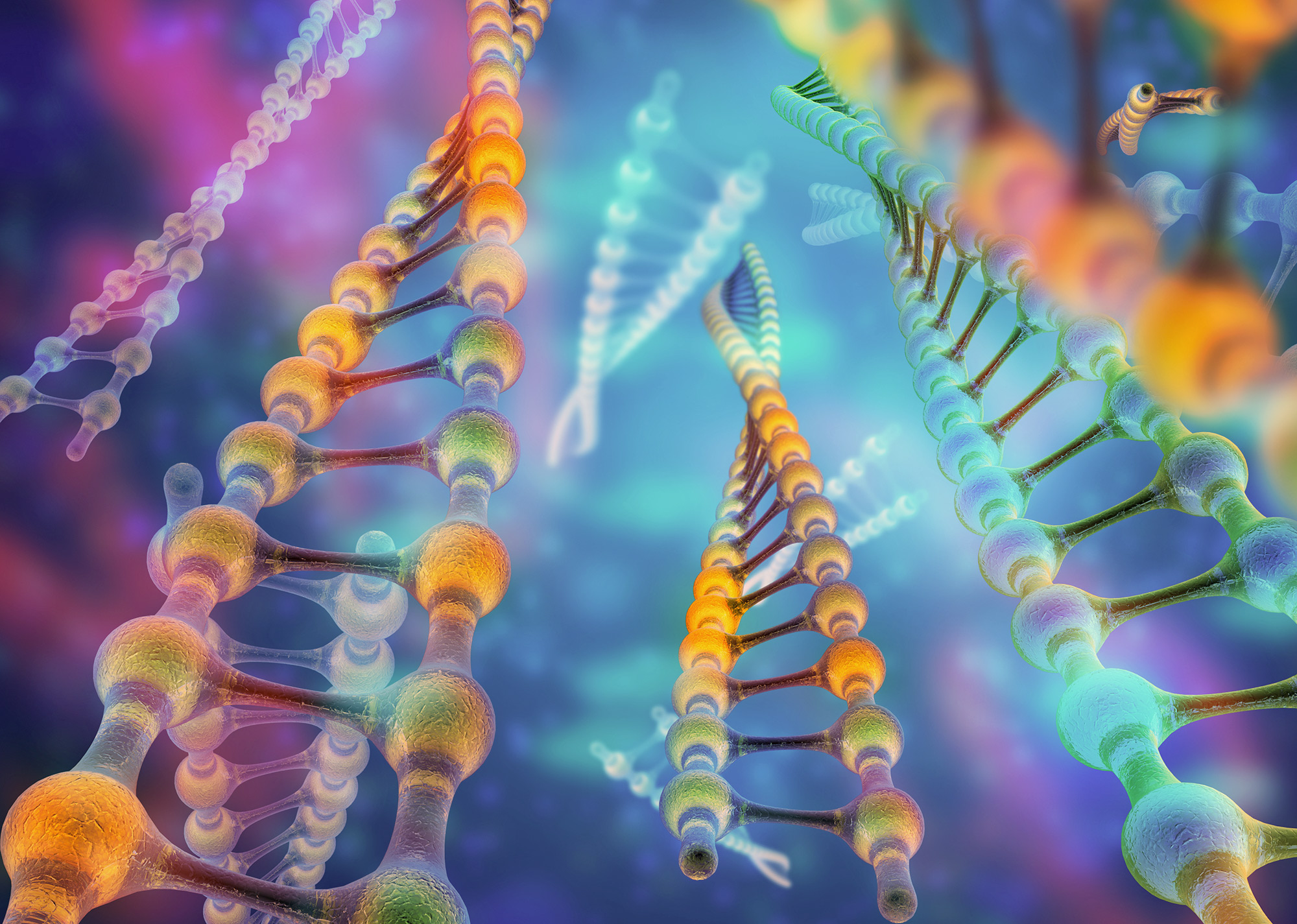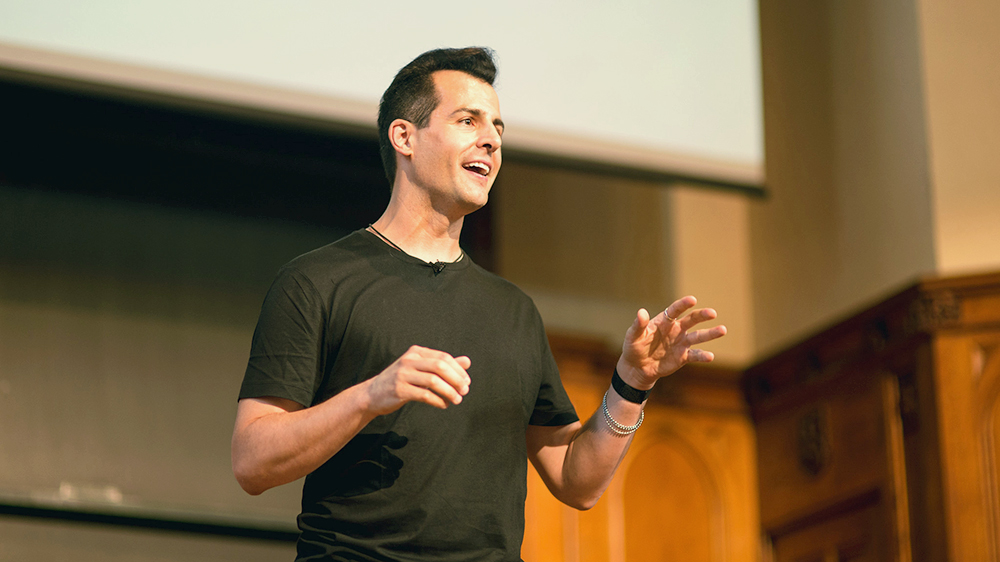What You'll Learn
- Understand the latest bioinformatics tools and topics, such as information DNA sequencing and assembly; BLAST output; probability and statistics; sequence alignment; ORF prediction; functional genomics; phylogenetics; sequence, gene, and protein databases; and social and ethical considerations.
- Enhance skills in computer science and programming through use of algorithms, data structures, string manipulation, encapsulation, resource management, security, software engineering, and web development.
- Develop competency with programming languages such as Java, Python, R, C++, and SQL.
- Acquire knowledge in a focused topic area, such as bioinformatic algorithms, genomics, medical informatics, and proteomics.
Certificate Courses
You’ll take four courses for the Bioinformatics Graduate Certificate, choosing one course from each of the following topic areas.
Bioinformatics (1 Course)
Course options include:
- BIOT 104 Introductory Bioinformatics
- BIOT 105 Bioinformatics: Fundamentals of Sequence Analysis
Molecular Biology (1 Course)*
Taken as your first course, you can choose from a variety of course options, including:
- BIOS 14 Principles of Genetics
- BIOS 50 Neurobiology
Programming (1 Course)*
- CSCI 7 Introduction to Computer Science with Python
- CSCI 50 Intensive Introduction to Computer Science
Elective (1 Course)
- BIOS 40 Introduction to Proteomics
- STAT 102 Fundamentals of Biostatistics
You can search for available courses by course group and term — fall, spring, or summer — in the certificate course search within DCE Course Search & Registration platform.
*Petitioning for Course Exemptions
- Molecular biology course: If you earned a bachelor’s or advanced degree in biology, you may petition to be exempted from this course. We will not grant exemptions for a minor in biology. If granted an exemption, you will take a second elective to complete the certificate.
- Programming course: If you have taken a course in Java, Python, or another programming language, you may petition to be exempted from this course. If granted an exemption, you will take a second elective to complete the certificate.
- To petition for an exemption, email Graduate_Certificates@Extension.Harvard.edu. The petition should include:
- A short explanation about the exemption being requested and why.
- Evidence of degree or course, such as a scanned copy of a transcript (unofficial is acceptable).
- Indication of which additional elective you plan to take in place of the exempted requirement.
Featured Faculty
-
![]()
Amy Tsurumi
Assistant Professor of Surgery, Massachusetts General Hospital and Harvard Medical School
-
![]()
Frederick R. Bieber
Associate Professor of Pathology, Harvard Medical School
-
![David Malan]()
David J. Malan
Gordon McKay Professor of the Practice of Computer Science, Harvard University
-
![]()
Laura Magnotti
Lecturer on Neuroscience, Harvard University
Our Community at a Glance
Through this professional graduate certificate you will work with peers in the fields of medical science and research, genetics, molecular and cellular biology, scientific programming, and software development.
-
1/4
Applied Their Certificate to ALM Degree
-
84%
Working Full Time
-
50%
Pursued Certificate to Deepen Expertise or Advance Career
Earning Your Certificate
Most of our certificates can be completed online and no formal application process is required to pursue a certificate.
To meet the requirements for the certificate, you must:
- Complete the four certificate courses for graduate credit.
- Earn at least a B grade in each course.
- Complete the courses within three years.
Learn more about pursuing a certificate and the process of requesting your certificate.
Stack Your Certificate Into a Degree
Stackable credential pathways allow you to earn multiple credentials by completing courses that meet overlapping requirements. In the short term, you can earn your bioinformatics certificate. Once completed, those four courses may put you a third of the way toward earning a master’s degree in biotechnology.
This stackable pathway offers an efficient, cost-effective way to earn short-term credentials to help fill immediate skill gaps and acquire specialized knowledge while building a foundation for long-term success that showcases your expertise in the field.
Learn how to plan a stackable credential pathway.
Cost
Affordability is core to our mission. When compared to our continuing education peers, it’s a fraction of the cost.
| Our Tuition (2024–25 rate) | $3,340 per course |
|---|---|
| Average Tuition of Peer Institutions | $5,476 per course |
| Average Total Cost | $13,360 |
FAQs
Is bioinformatics an in-demand career field?
Yes, bioinformatics is a rapidly growing and in-demand career field necessary for understanding complex biological processes important to the life sciences. As data-driven approaches revolutionize healthcare, biotechnology, and pharmaceuticals, the need for professionals with bioinformatics training has surged. Roles in bioinformatics are highly sought after in areas such as genomics, personalized medicine, drug discovery, and agricultural biotechnology.
How will a bioinformatics certificate support my career?
The bioinformatics graduate certificate gives you the skills you need to analyze and interpret complex biological data. Through this online program, you’ll become proficient in cutting-edge bioinformatics tools and topics like DNA sequencing and assembly, sequence alignment, functional genomics, and phylogenetics. You’ll also build expertise in essential programming languages, including Java, Python, R, C++, and SQL — key skills for managing and analyzing large biological datasets. This specialized training opens doors to a variety of roles in medical science, genetics, molecular and cellular biology, scientific programming, and software development.
Will this program prepare me for work in biotechnology or pharmaceuticals?
Yes, the program offers focused bioinformatics training that is highly relevant to both the biotechnology and pharmaceutical industries. The curriculum includes topics such as DNA sequencing, functional genomics, and the use of bioinformatics algorithms, all of which are integral to research and development in these sectors.
How long does it take to complete the bioinformatics certificate program?
This online graduate certificate program is designed to be flexible. You are required to complete four courses (16 credits), but you can spread these courses out, up to three years, depending on your schedule. Most students complete the certificate within 18–24 months.
What is the typical weekly time commitment for each course?
Each course usually requires a commitment of 8 to 12 hours per week. This time includes the online course, assignments, and participating in hands-on projects.
How do I get started on the certificate?
To get started on your graduate certificate, you simply register for your first course. We offer courses during the fall, spring, and summer semesters. There is no application.




